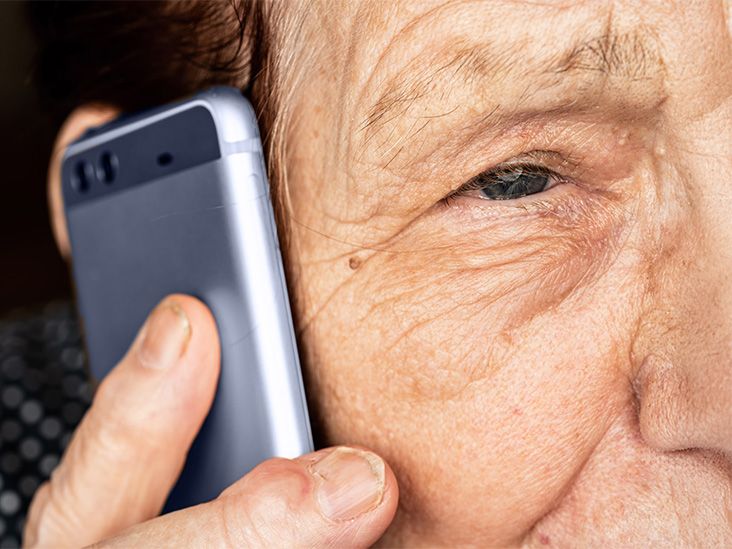Understanding the Feeling of Impending Death
Its not uncommon for people to occasionally get the feeling or sense that they are going to die soon. This perception of impending death can be alarming and confusing. While the causes are diverse, there are often explanations both psychological and physical.
Common Reasons People Feel Impending Death
Some of the most common reasons people report having an ominous sense of impending death approaching include:
- Anxiety disorders like generalized anxiety creating unease about the future
- Depression with thoughts of doom, danger or suicidal ideation
- OCD fixating on themes of death or causing constant uncertainty
- PTSD reliving trauma and feeling in survival mode
- Psychotic disorders contributing to delusions about risk of death
- Sleep issues like insomnia depriving cognitive functions and perspective
- Stress exhausting mental state and diminishing ability to cope
- Grief and traumatic loss distorting view of the world as dangerous
- Physical illness provoking awareness of fragility and mortality
- Medication side effects negatively impacting brain chemistry
How Anxiety and Worry Can Create This Feeling
One of the most common mental health causes of preoccupation with impending death is anxiety. Both generalized anxiety and specific phobias can latch onto death as a focus of persistent rumination and worry.
Chronic anxiety often leads to scanning for and overestimating any potential dangers. As anxiety levels heighten, normal concerns morph into catastrophic thinking about risks. Focus narrows to interpret every difficulty as a sign of impending disaster or death around the corner.
Getting stuck in this cycle of anxiety about death can take on a life of its own. The mind starts automatically defaulting to the bleakest assumptions in an effort to feel prepared. Soon a sense of constant vulnerability and not being safe dominates every thought.
How Depression Can Distort Perspectives
Clinical depression can also create a powerful sense of impending death encroaching. Depressive thinking patterns tend to fixate on themes of loss, failure, worthlessness and hopelessness about the future.
As depressive symptoms worsen, sufferers withdraw from normal activities, disengage socially and believe nothing can get better. Passivity, sadness and isolation feed into perceptions of danger and doom growing ever nearer.
In severe depression, troubling thoughts can turn to suicidal ideation. This sense of wanting to die reinforces the sense that death is imminent. Even milder depression can shade everything with thoughts of mortality if left unaddressed.
PTSD and Trauma's Effects
People struggling with post-traumatic stress disorder (PTSD) often feel haunted by the past and on alert for fresh trauma unfolding. PTSD essentially puts the body and mind into constant survival mode.
This activation of the primal fight-or-flight reaction translates into seeing potential threats everywhere. Danger can seem to lurk around every corner. Feeling at risk reawakens past traumas and provides fuel for the perception of death as looming.
The more the PTSD sufferer avoids dealing with the root traumatic events, the more powerful this feedback loop grows. Small triggers more readily provoke full fight-or-flight reactions or even emotional numbness.
Physical Illness Can Increase Awareness of Mortality
The onset of health conditions or physical illness may also increase rumination about death approaching. Awareness of one's mortality often becomes more pronounced when confronted by disease or declining capabilities.
Chronic Conditions Lead to Existential Thinking
Receiving a diagnosis of a serious, debilitating or progressive condition understandably sparks grappling with deeper questions of meaning and existence. Confronting chronic illness often leads to anxiety about the future and end of life matters.
Even non-life-threatening but challenging illnesses prompt people to fixate more on finality and the fragility of health. Chronic pain in particular has a wearying effect that depletes optimism and promotes fatalistic thinking.
When health suffers, death naturally moves from an abstract concept to a much more vivid potential reality. This can manifest as a persistent unease that demise is quickening.
Terminal Diagnosis Reinforces Mortality
In cases where patients receive a terminal diagnosis with limited time left, sensing impending death is particularly understandable. Whether the prognosis includes a few months or a few years, facing the concrete finality of life promotes dwelling on it daily.
Preoccupation with dying is common among the terminally ill. Moving through the emotional stages of grieving one's mortality is a natural part of the journey. Fear, anger, sadness and denial may occur and recur around this loss of life.
While acutely distressing, accepting impermanence can ultimately foster meaning, growth and treasuring each moment as the end nears. Professional counseling provides support in this difficult transition.
Steps to Manage Fears of Impending Death
Whether stemming from mental health issues or physical conditions, chronic fear of impending death can be extremely disruptive to quality of life. Learning constructive ways to respond to these concerns is crucial.
Address Any Underlying Mental Health Needs
Seeking treatment from a mental health professional is recommended if conditions like anxiety, depression or PTSD seem involved. Therapies like cognitive behavioral therapy (CBT) are effective at correcting cognitive distortions related to danger.
Medications may also help relieve symptoms fueling a sense of impending doom. Anti-anxiety medications, antidepressants and other drugs can be useful alongside counseling.
Make Positive Lifestyle Changes
Improving general mental and physical wellbeing also helps combat fears of impending mortality. Getting regular exercise, eating nutritious foods, getting quality sleep and reducing life stresses all contribute to a healthier mindset.
Developing spiritual practices, spending time in nature, nurturing relationships and expressing creativity are also excellent ways to find meaning and shift focus toward positive emotions versus worrying.
Reframe Your Relationship to Mortality
Exploring your beliefs and assumptions about death through journaling, discussion or meditation can help reduce associated anxiety. Consider impermanence as part of the natural cycles of life.
Let go of any belief that you can control when death occurs. Accept it as inevitable for all, but not always imminent. Appreciate each moment you have without getting lost in fatalistic thinking.
Seeking support from hospice care professionals is also advisable if you or a loved one have specific terminal diagnosis concerns affecting quality of life.
When to Seek Emergency Help
While fearing impending death is often a mental health symptom, it is still essential to rule out potential physical causes or risks requiring prompt medical attention. Contact emergency services immediately if you experience:
- Chest pain, heart palpitations or other signs of heart attack
- Difficulty breathing or sensations of suffocating
- Dizziness, weakness or loss of consciousness
- Severe new headache or head trauma
- Uncontrolled bleeding or hemorrhaging
- Seizures
- Sudden inability to move parts of your body
- Severe new pain anywhere in the body
- Signs of shock such as clammy skin, confusion or fainting
- Thoughts of hurting yourself or others
Staying attuned to your mental state is important, but always rule out medical issues first. With proper care for both mind and body, feelings of impending doom can be overcome.
FAQs
Why do some people feel like they are going to die soon?
Feelings of impending death can arise from mental health issues like anxiety, depression, OCD or PTSD. Physical illnesses and trauma can also contribute to fixating on mortality.
How does anxiety cause feelings of impending death?
Anxiety often leads to overestimating dangers and interpreting every difficulty as a sign of impending disaster. This can create a constant sense of vulnerability.
Can depression be associated with feeling impending death?
Yes, depressive thinking patterns tend to fixate on themes of loss, failure, and hopelessness about the future. This can reinforce a sense of death growing nearer.
What should you do if you have a sense of impending death?
Address any underlying mental health conditions through counseling and medication. Also make positive lifestyle changes, reframe mortality perspectives, and rule out severe medical issues.
When should you seek emergency help for feelings of impending death?
Go to emergency services immediately if you have symptoms like chest pain, difficulty breathing, loss of consciousness, uncontrolled bleeding, or thoughts of hurting yourself.
Disclaimer: This article is for informational purposes only and does not constitute medical advice. Always consult with a healthcare professional before starting any new treatment regimen.
Related Coverage
Find the right Nevada Medicare plans with ease. Compare options and enroll in Medicare coverage tailored to your needs today....
Get clear info on Medicare Part B cost for 2025, including premiums, deductibles, and ways to lower what you pay each month....
Doing crossword puzzles and word games regularly helps maintain mental sharpness while providing physical health benefits that support healthy aging across areas like memory, mood and lifespan....
Find out how the Medicare Part B Give Back can lower your monthly premium, who qualifies, and what to watch for before enrolling....
Don't face unexpected costs. Know how the Medicare Part A penalty works and how to avoid paying more for your coverage....
Learn how Medicare nonparticipating providers work, including billing practices and out-of-pocket costs. Get informed today....
Know how to report death to Social Security and Medicare promptly. Get step-by-step help to avoid overpayments and learn about survivor benefits....
Learn how the Scope of Appointment in Medicare protects your choices and ensures transparent plan discussions with agents....
Tai chi gently improves flexibility through flowing movements like knee rotations, ankle sways, and hip circles. Research shows it significantly reduces falls in the elderly....
Find the right Medicare in Texas with our guide to coverage options, plans, and enrollment tips for Texans....









